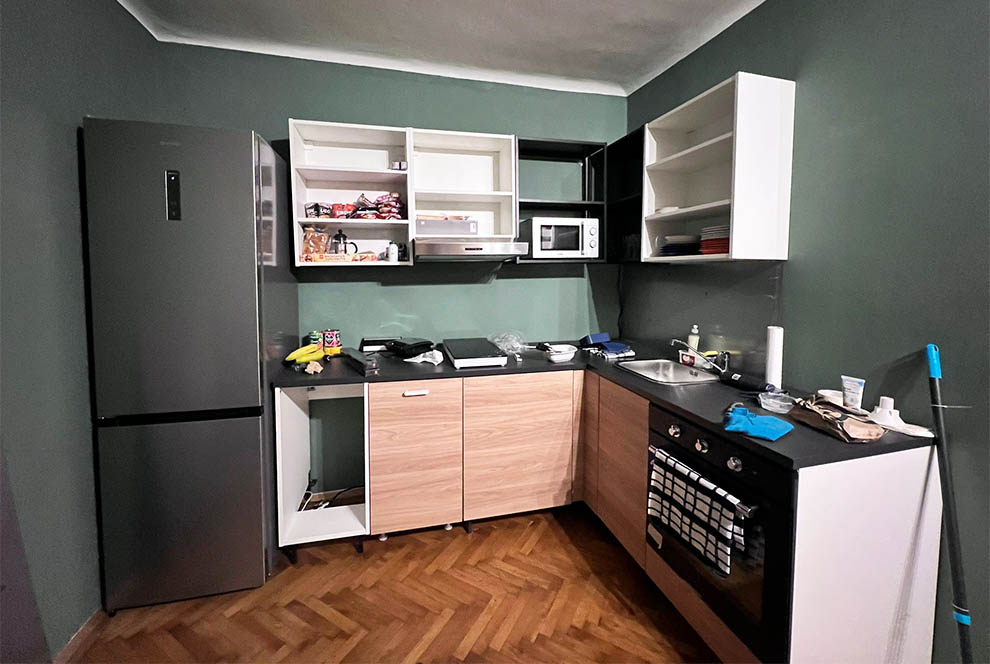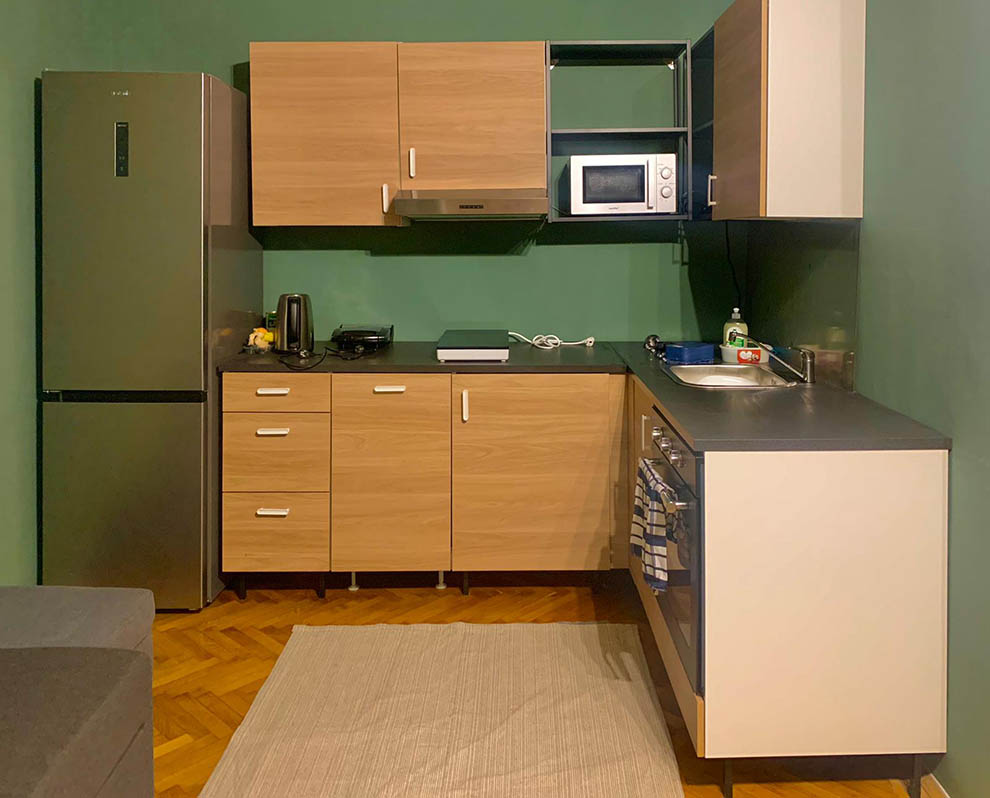
How To Effectively Save Up for your Child’s First Property : Us fixing the kitchen ourselves
So we’re at this point where the kids wanted to move out. Even if you tell them that it’s totally fine to stay, they would venture out into the world to be on their own. It’s of course a decision that needs careful consideration and preparedness : mentally, emotionally, and financially.
When starting out as a solo individual, whether it’s better to rent a flat or buy depends on various factors, including one’s financial situation, lifestyle preferences, and long-term goals. Here are some considerations to help you make an informed decision:
Renting:
- Flexibility: Renting offers greater flexibility, allowing you to easily relocate for work or personal reasons without the commitment of owning a property.
- Lower Upfront Costs: Renting typically requires lower upfront costs compared to buying a property. You’ll generally only need to pay a security deposit and possibly the first month’s rent.
- Maintenance Responsibility: As a renter, you’re not responsible for maintenance and repairs. This can save you time and money compared to homeownership.
- Predictable Expenses: Renting often comes with predictable monthly expenses, as the landlord is responsible for property taxes, insurance, and maintenance costs.
- Ability to Test Locations: Renting allows you to test different neighborhoods or cities before committing to buying a property in a particular area.

How To Effectively Save Up for your Child’s First Property : our daughter’s cat
Buying:
- Equity Building: Homeownership allows you to build equity as you pay down your mortgage and potentially benefit from property appreciation over time.
- Stability and Security: Buying a home provides stability and security, knowing that you have a place to call your own and can customize it to your preferences.
- Long-Term Investment: Real estate can be a valuable long-term investment, providing potential financial security and a source of wealth accumulation.
- Tax Benefits: Homeownership offers potential tax benefits, including deductions for mortgage interest and property taxes. Consult with a tax advisor to understand the specific advantages in your situation.
- Potential Rental Income: If your financial situation allows, you may have the opportunity to rent out a portion of your property for additional income.
Considerations for Both Options:
- Financial Readiness: Evaluate your financial situation, including your income, savings, credit score, and debt levels, to determine if you’re financially ready for homeownership.
- Market Conditions: Consider the local real estate market conditions, including home prices, rental rates, and supply and demand dynamics.
- Long-Term Goals: Consider your long-term goals and how homeownership fits into your overall financial plan. Evaluate factors such as job stability, family plans, and lifestyle preferences.
- Affordability: Compare the costs of renting versus buying in your desired location to ensure you can comfortably afford homeownership, including mortgage payments, property taxes, insurance, and maintenance costs.
Ultimately, the decision to rent or buy when starting out as a solo individual depends on one’s individual circumstances and priorities. Take the time to carefully weigh the pros and cons of each option before making a decision. If unsure, consider consulting with a financial advisor or real estate professional for personalized guidance.

How To Effectively Save Up for your Child’s First Property : Kitchen done
As parents, we should as early as now, start saving up for whichever the kids decide on, also by educating the kids, saving up and coming up with decisions later won’t be much of an issue. Consider also the expenses for furniture and all, so that the child will live comfortably. Saving up for your child’s first property is a significant financial goal that requires careful planning and commitment. With the help of some financial tools and knowledgeable friends, and also experts, it’s doable. Here’s a step-by-step guide to effectively save up for this purpose:
- Set a Clear Goal: Determine the target amount you want to save for your child’s first property. Consider factors like location, property type, and size to estimate a realistic target.
- Create a Budget: Assess your current financial situation and create a budget that allocates funds towards saving for your child’s property. Cut down on unnecessary expenses and prioritize saving.
- Open a Dedicated Savings Account: Open a separate savings account specifically for this goal. Consider accounts with high-interest rates or specific benefits for long-term savings.
- Automate Savings: Set up automatic transfers from your primary account to the dedicated savings account on a regular basis. This ensures consistent contributions without the temptation to spend the money elsewhere.
- Invest Wisely: Depending on your risk tolerance and timeline, consider investing a portion of your savings in low-risk investment vehicles such as mutual funds, bonds, or index funds. Consult with a financial advisor to develop an investment strategy aligned with your goals.
- Utilize Tax-Advantaged Accounts: Take advantage of tax-advantaged accounts such as 529 plans or Roth IRAs, which offer tax benefits and can be used for educational expenses or as a down payment for a first home.
- Maximize Employer Benefits: If your employer offers retirement contributions matching or other benefits, take full advantage of these opportunities to increase your savings potential.
- Encourage Contributions: Encourage your child to contribute to the savings goal by saving a portion of their income or gifts towards their future property.
- Monitor Progress Regularly: Track your savings progress regularly to ensure you’re on track to meet your goal. Adjust your savings plan as needed based on changes in your financial situation or market conditions.
- Educate Your Child: Teach your child about the importance of saving and financial responsibility. Involve them in the process to instill good money habits and help them understand the value of homeownership.
- Consider Other Funding Sources: Explore additional funding sources such as inheritance, windfalls, or bonuses that could accelerate your savings progress.
- Be Patient and Persistent: Saving for a property takes time and discipline. Stay focused on your goal, remain patient, and celebrate milestones along the way.
By following these steps and staying committed to your savings plan, you can effectively save up for your child’s first property and help them achieve this important milestone in their life.

How To Effectively Save Up for your Child’s First Property : at Daughter’s place – Flexispot Ergonomic table and kitchen she designed




